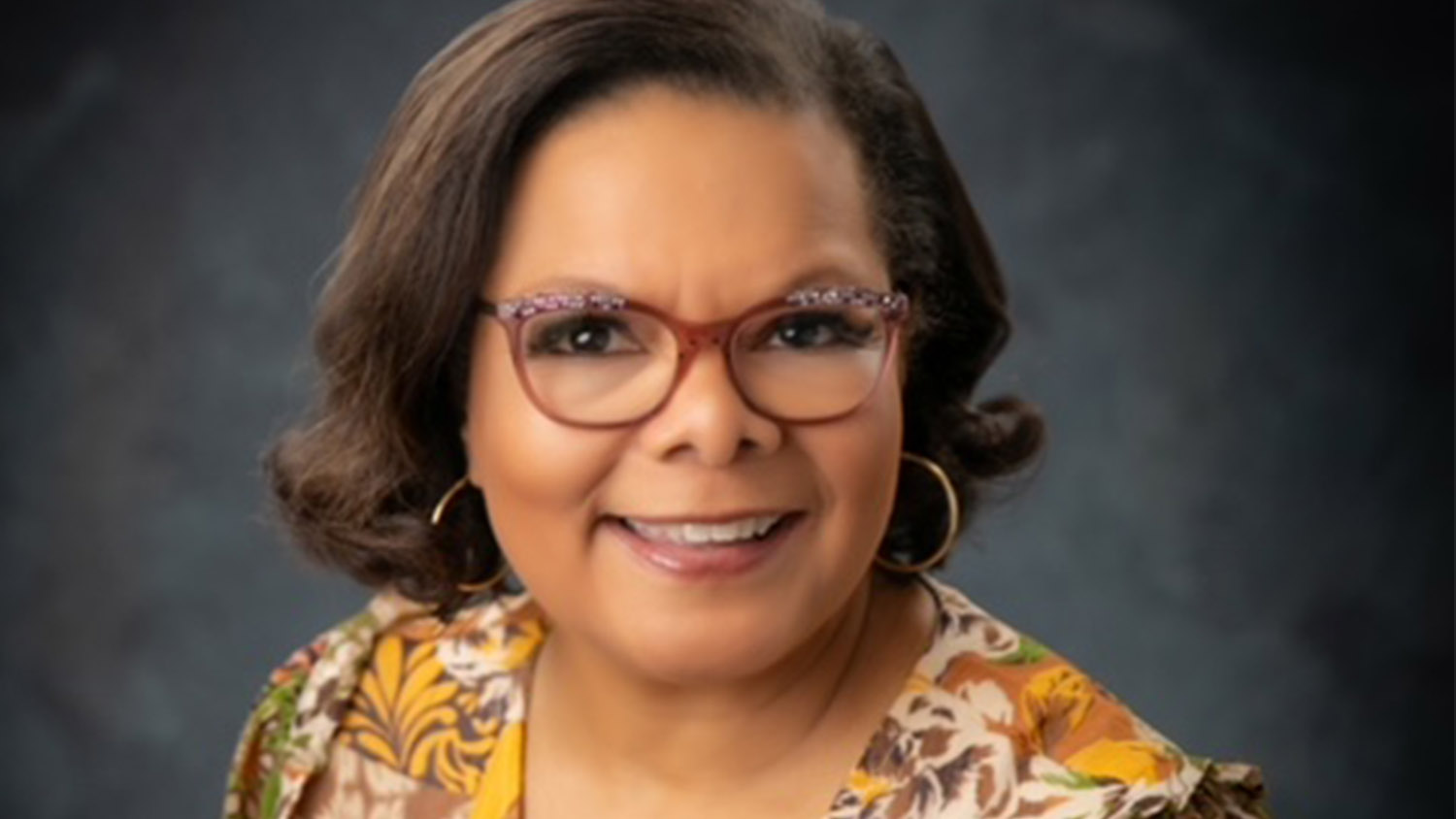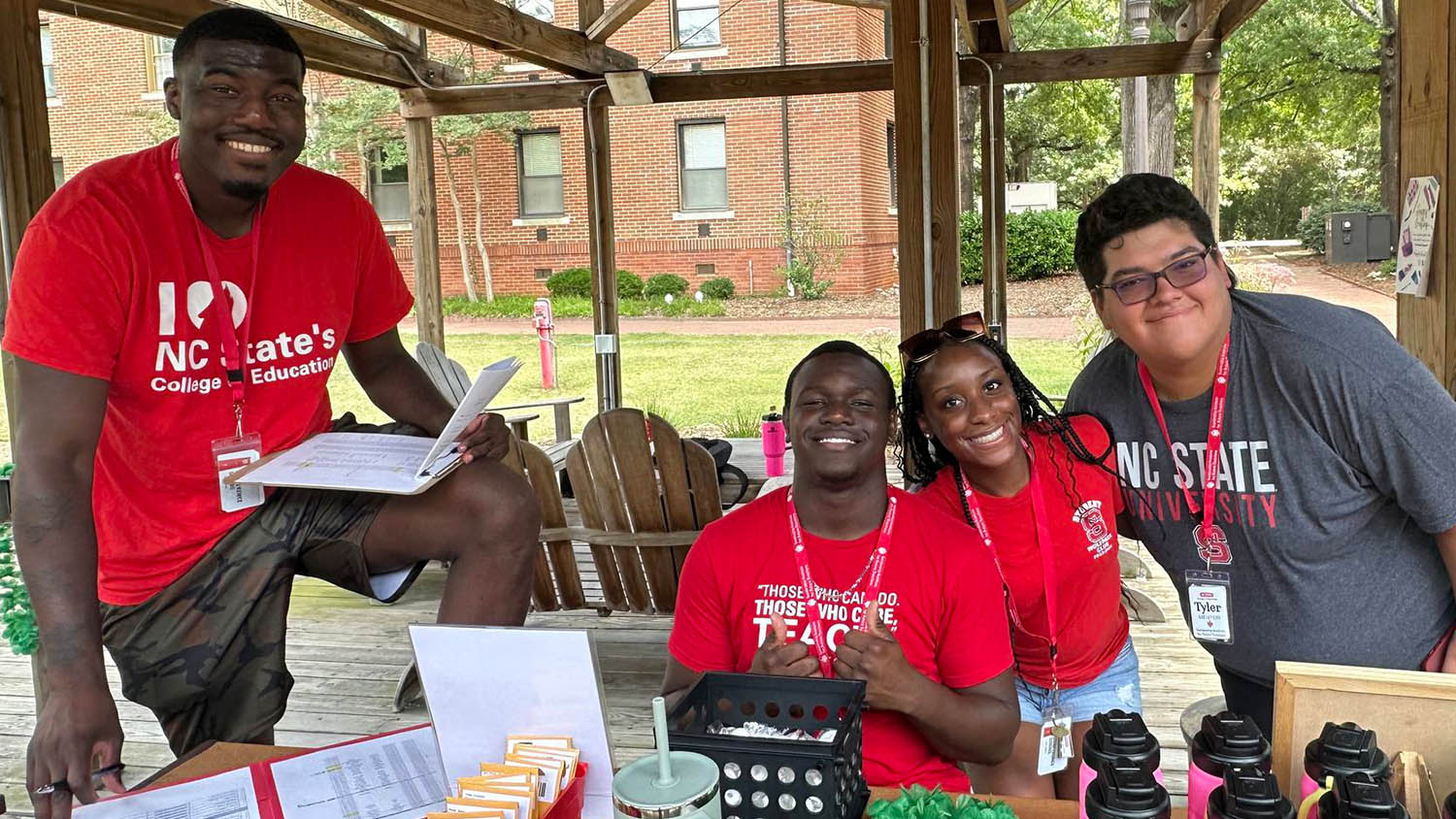Assistant Professor Michelle Falter Receives North Carolina English Teachers’ Association’s First-ever Anti-Racist Teaching Award

Michelle Falter, Ph.D., assistant professor of English education and literacy at the NC State College of Education, has been awarded the North Carolina English Teachers’ Association’s first-ever Anti-Racist Teaching Award.
The Anti-Racist Teaching Award recognizes exemplary educators who are actively engaged in the work of anti-racist teaching in North Carolina and “actively and deliberately ensure that all students have access to an education that is free of racism, bias and other forms of bigotry.”
According to the nomination guidelines, the recipient of the award must possess self-awareness of their relationship to race and power structures, select curriculum materials that uplift marginalized voices and experiences, represent historical context while teaching literature and acknowledge the ongoing effects of systemic racism while working to combat those effects in the classroom.
“I was humbled and honored to receive this award,” Falter said. “It’s a huge responsibility to be named an anti-racist educator, and especially the first one that the North Carolina English Teachers’ Association has recognized.”
This summer, Falter co-authored “Becoming Anti-Racist ELA Teachers: Ways to Move Forward” with College of Education Associate Professors Chandra Alston, Ph.D., and Crystal Chen Lee, Ed.D. The white paper outlines five steps and provides practical resources to help secondary English Language Arts (ELA) teachers work toward becoming anti-racist educators.
Falter is also currently working on a content analysis of middle grades and young adult literature to assess whether or not they meet the criteria for Project Lit, a grassroots network of book groups that aims to get students excited about reading by highlighting diverse, high-interest, culturally relevant books.
For Falter, though, anti-racist education is represented by more than just the projects she works on. The philosophy is ingrained in the way she constructs her courses and syllabi, reflects on course readings that include minoritized voices, welcomes diverse thoughts and examines implicit biases regularly.
“For me, anti-racist work is a 24/7 attitude and mindset. It is a process of examining my biases and checking myself in relation to others who are different from me in race, creed, sexual orientation, gender, ability or socio-economics,” she said. “It is a way of living my life.”
Falter said she began her career in education as a high school English teacher in a predominantly White school district in Wisconsin, where she noticed her students held a lot of unexamined privileges and biases about those who were different from them.
It was important to her to ask those students to think critically and examine power structures and dynamics in classroom literature, and her desire to push for change stemmed from her dislike of seeing unfair circumstances in the world. It is this loathing of unfairness that has continued to push Falter to work toward anti-racist education and equal opportunities and representation for students of all backgrounds.
“I see unfairness everywhere in our society and I feel as an educator and as a human who cares about other humans, it’s a responsibility to make our world better, fairer and more equitable for all. Anti-racist work is doing just that,” she said.
As an assistant professor who is currently training the next generation of educators, Falter said she hopes that her students will learn to continually reflect on their own teaching practices to best support and uplift all students and to embrace what she calls “the wobble.”
A term she learned in her own doctoral program and now uses in all of her courses, “the wobble” refers to situations in the world that may cause people to feel tension and anxiety, particularly when confronted with new truths or realities that have previously gone unnoticed. In moments of “wobble,” people have a choice to either learn and grow or get frustrated, defensive and angry.
“I hope my students choose the first option. I hope that like the poet Maya Angelou has stated, that ‘once they know better, they will do better’ for their students,” she said. “I hope they learn that anti-racist teaching is just plain good teaching. I hope they understand that even when they get their degree and teaching license that they are not done learning and unlearning.”
- Categories:


